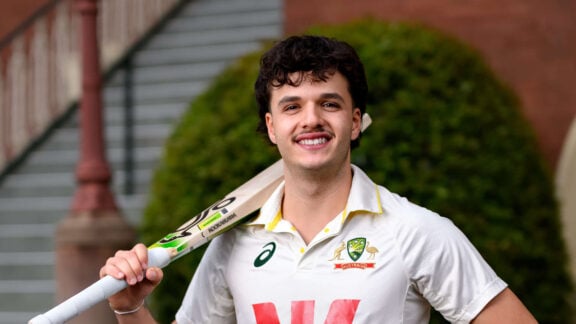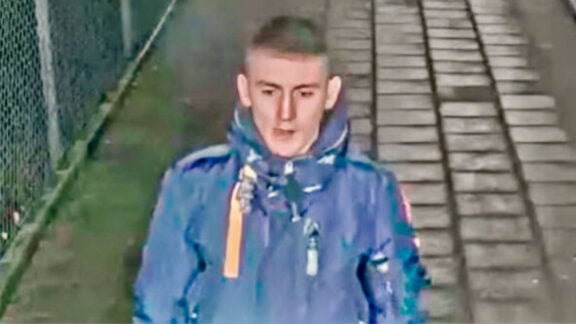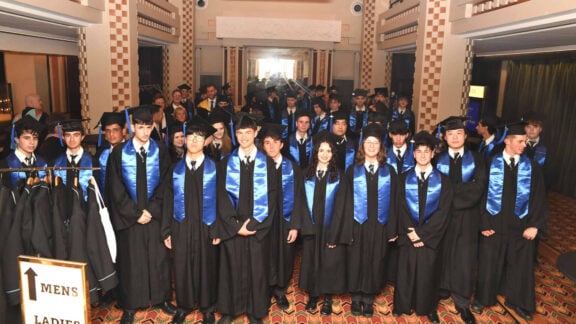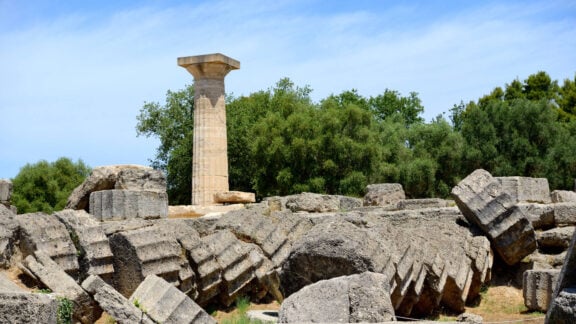In Charleville, Queensland, the legacy of some Greek families is still alive and well. In particular the family of Harry Corones and Jim Corones who emigrated to Australia in 1907.
Harry Corones was not only a pioneer in a number of fields, but also an entrepreneur of exceptional stature. Harry and his nephew Jim had hotels in Charleville and Quilpie, but the most luxurious was the Corones Hotel where prime ministers, royalty and famous aviators of the day had stayed. Harry Corones was also one of the founding shareholders of Qantas.
A few words about Charleville
Charleville (750km west of Brisbane) was recorded as a town in 1867 after some pastures in the area were surveyed in 1863. Situated on the banks of the Warrego River along a natural route for livestock from New South Wales to West Queensland, the town was to become the major centre for servicing the surrounding livestock industry. Groups of cattle were passing through the town as the Cobb & Co company established stables (as well as a factory for the manufacture of mail wagons and carts and a sawmill).
In 1888 Charleville’s position as a strategic transportation hub for the southwestern part of the state was solidified when the terminal of the Western Railroad was erected (extended south to Cunnamulla in 1898 and west to Quilpie in 1917).

Harry Corones
Haralambos (Harry) Corones, then, was the first Greek to hold an innkeeper’s licence in Australia.
According to Dianne Byrne (in Australian Dictionary of Biography, Volume 13, 1993 and online since 2006), Haralambos (Harry) Corones was born on 17 September 1883 in Kythera. Son of Panagiotis Koronis, a fisherman by trade, and Stamatia, née Friliggos.
In 1906 he completed his military service and after unsuccessfully applying to emigrate to the United States of America, he emigrated to Australia, arriving in Sydney on 10 August 1907.
Six weeks later he moved to Brisbane where he worked in the Freeleagus Brothers’ oyster shop on George Street.
Around 1909 he moved to Charleville where he took over the management of a coffee shop.
In 1911 he opened the Paris Café on the corner of Wills and Galatea Streets, where he also operated a silent cinema and organised variety shows with artists brought in from Brisbane and Sydney.
In 1912 Corones acquired the lease of the Charleville Hotel.

It is rumoured that Paddy Cryan – a traveling salesman for the Castlemaine Perkins brewery – had visited the Paris Café for a meal and was so impressed by Harry’s courtesy that he suggested he go into the hotel business. Harry told him that he knew nothing about hotels and didn’t have enough money. However, Cryan convinced him that he could learn the trade and that the brewery would finance him.
Corones became a naturalised Australian in June 1912, but he married in a Greek Orthodox marriage, to Eftychia, daughter of Father Seraphim Fokas, at the Holy Trinity Church, Surry Hills, Sydney, on 29 April 1914.
It should be noted that a fire had destroyed the Charleville Hotel in 1913, but it was rebuilt and Corones ran it until the lease expired in 1924.
The first half of the 1920s was a period of economic prosperity in Queensland, unprecedented for three decades. The boom was more focused on the construction sector than others; and in Brisbane the transformation of the city’s central business district was a tangible legacy of that boom.
In Charleville the high streets acquired an air of steady prosperity and it developed into one of the wealthiest areas of western Queensland.

In 1922 – as an enthusiastic advocate of aviation as a means of ending the isolation of the western Queensland region – Corones bought 100 of the original shares in the newly formed Queensland and Northern Territory Aerial Services Ltd – namely Qantas. He also provided picnic baskets and meals for passing passengers from a converted hangar at Charleville airport. It also appears that he suggested the names of the airline’s first five aircraft – Hermes, Atlanta, Apollo, Diana and Hippomenes – drawing on Greek Mythology.
The newly formed Qantas began its first commercial services from the city in 1922 (replacing the last Cobb & Co bus that had been operating in 1920). In 1924 the city’s electric lighting was switched on and the new Municipal Hall was completed in 1926. However, a severe drought in 1926 described by the Charleville Chamber of Commerce as the worst season known to black or white man, with sheep losses over a vast eleven million acres, was destined to drive the state’s livestock and agricultural sectors into collapse, and many rural towns entered a slow decline into the global depression of the 1930s.
In July 1924 Corones rented another hotel, the Norman, again in Charleville. After purchasing the property, he demolished the building to begin construction of the Corones Norman Hotel, which was completed in 1929 at a total cost of £50,000.
The architect of this magnificent modern hotel was William Hodgen Jnr (1867-1943), son of Toowoomba’s pioneering building contractor, William Hodgen. He himself in 1891 enrolled at the London School of Architecture in 1891. In December 1896 he returned to Queensland and began his practice the following year in Toowoomba.

The hotel, with its jazz hall, embossed plaster ceilings and private bathrooms, was an oasis for shepherds, wool buyers and commercial travellers. As a result, the Charleville became the hub of the fledgling airline industry, with a host of celebrities passing through the hotel, including politicians, members of royalty, big merchants and others.
Charleville came to mean Corones because the Corones Hotel was the centre of Charleville’s social activities and the place where business deals could be struck. People who insist on the best possible living have always made Corones their home while in Charleville.
At the same time, in Quilpie, Corones ran three other hotels managed by his nephews. He had purchased the Quilpie Hotel in 1921 and four years later built the Imperial Hotel. In 1934 he leased the Club Hotel from the Castlemaine Perkins Brewery.
His other business ventures included a 17,000-acre (6880 ha) estate, Whynot, near Thargomindah, and a half share in an import company operating out of Sydney until the Depression period (1929-1930).
Harry Corones died on 22 March 1972 at Charleville and was buried in the local cemetery in the Anglican rite.
His eldest son, Peter, and his wife, Mary, who had managed the hotel for some time before Harry Corones’ death, continued to run it. In 1982 the hotel was acquired by Doreen and Bob Bishop. It changed hands again in 1989. In 1990 a motel was erected at the rear of the hotel. In April of that year, from the devastating flood that covered much of the town, water entered the ground floor of the hotel. As a result, major work was carried out, including the restoration of the main staircase. In 1993, the hotel was listed by the National Trust of Queensland.

Hotel Corones is now operated by Gordon and Frances Harding as a local pub and (in recognition of the hotel’s iconic status) as a cultural tourist attraction in the south-west of the state.
In February 2014, the hotel was sold to ERI Partners.
In commemoration of his membership (1916-69) on the Charleville Hospital Board of Trustees and his chairmanship of the projects committee, the nurses’ quarters were named the Harry Corones Block. He was a member of the original committee (1919) of the Ambulance Centre and participated in its affairs until 1958. In addition, he served on the local Fire Board for over twenty years. Corones was a founding member and major contributor to the golf and bowling clubs, as well as a founding and life member (1966) of the All Whites football team. In 1965 he was awarded the title of M.B.E. (Member of the Most Excellent Order of the British Empire).
Interestingly, one of his children became a doctor. Dr. George Corones retired from medicine and devoted himself to swimming, breaking the veterans’ records in the 50 and 100 metres when he was 98 and 99 years old. He died in Brisbane a few years ago, shortly before his 102nd birthday.

Other Greek families in Charleville
Another pioneering Greek family in Charleville was the Tsikalas family (known as the Chicalas). The mother, Pagona (née Giannatos), arrived in Australia in 1951, and died about a year ago at the age of 101. She was much loved and popular with the local population. As a seamstress and dressmaker, she was reportedly responsible for many gowns and dresses for ladies attending important events. She was known in the local community as Mrs Chic.
The Greeks in the area at that time apparently numbered around 60. In addition to the Corones and Chicalas, we find the Locos and Comino (also from Kythera) among others.
One has to think that these people, because they were so far away, were cut off from Greek culture, the large Greek family gatherings of the large and organized parishes, deprived of all those things that are special to Greeks.
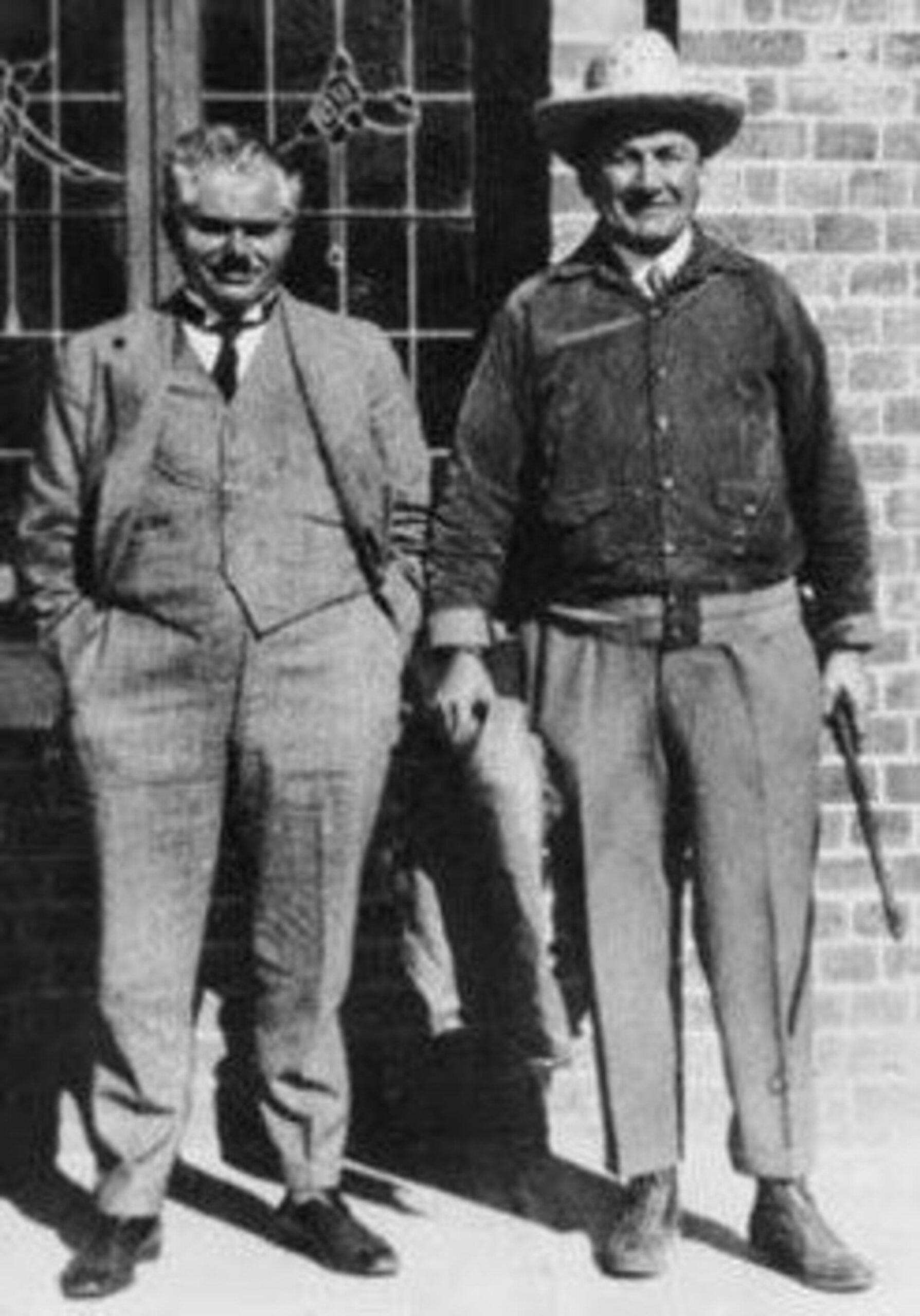
*Information and photos kindly provided by Mr. George Ballas OAM.

